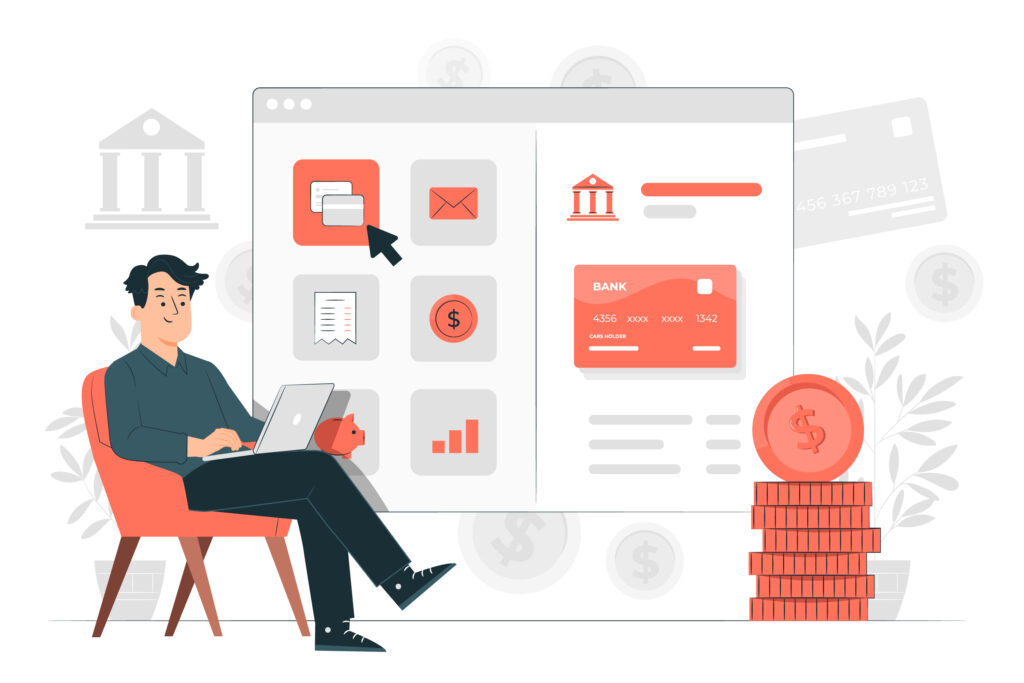In today’s fast-paced world, online banking has revolutionized the way we manage our finances. It offers convenience and accessibility like never before, allowing us to handle transactions, pay bills, and monitor our accounts from the comfort of our homes. However, with these benefits come potential risks, particularly in the form of bank fraud. Safeguarding your online banking experience is of paramount importance. By following a few simple steps, you can better protect yourself from falling victim to bank fraud.

- Choose Strong and Unique Passwords: The first line of defense against online bank fraud is a robust password. Create passwords that are a combination of letters (both uppercase and lowercase), numbers, and special characters. Avoid using easily guessable information like birthdays or names. It’s crucial to have a different password for each online account you have to prevent a domino effect if one password is compromised.
2. Enable Two-Factor Authentication (2FA): Two-factor authentication adds an extra layer of security to your online banking. With 2FA, you’ll need to provide a second form of verification—usually a code sent to your phone or email—along with your password. This ensures that even if your password is compromised, a fraudster won’t be able to access your account without the additional verification.
3. Regularly Monitor Your Accounts: Frequently reviewing your bank statements and transactions can help you spot any unauthorized activity early on. Most banks offer online tools that allow you to monitor your accounts in real-time. If you notice any unfamiliar or suspicious transactions, contact your bank immediately.
4. Be Cautious of Phishing Attempts: Phishing is a common tactic used by cybercriminals to trick individuals into revealing sensitive information like passwords or credit card numbers. Be wary of emails, text messages, or calls asking for your personal or banking details. Always verify the authenticity of the sender before clicking on any links or sharing information.
5. Update Your Software Regularly: Both your computer’s operating system and any antivirus or anti-malware software should be kept up to date. These updates often include security patches that can protect your system from known vulnerabilities that fraudsters might exploit.
6. Use Secure Wi-Fi Networks: Avoid conducting online banking transactions on public Wi-Fi networks, as they can be less secure and more susceptible to hacking. Opt for a secure, password-protected network whenever possible, and consider using a virtual private network (VPN) for added security.
7. Install Official Banking Apps: If your bank offers a mobile app, use the official app from the app store. Fraudsters sometimes create fake apps to mimic legitimate banking apps, tricking users into revealing their login credentials. Downloading apps only from trusted sources helps minimize this risk.
8. Secure Your Devices: Ensure that the devices you use for online banking are password-protected or have biometric authentication enabled (such as fingerprint or facial recognition). This adds an extra layer of security in case your device falls into the wrong hands.
9. Be Wary of Unsolicited Calls: Scammers often make unsolicited calls, claiming to be bank representatives and asking for sensitive information. Remember that banks will never ask for your full password, PIN, or other personal details over the phone. If in doubt, hang up and call your bank’s official customer service line.
10. Educate Yourself: Stay informed about the latest types of bank fraud and common tactics used by scammers. Being aware of these tactics will make you more vigilant and better equipped to identify potential threats.
11. Regularly Check Your Credit Report: Monitoring your credit report can help you detect any unauthorized activity that could indicate identity theft or fraud. You’re entitled to a free credit report from each of the major credit bureaus once a year, so take advantage of this service.
12. Securely Dispose of Financial Documents: Shred or securely dispose of any paper documents that contain sensitive financial information, such as bank statements or credit card offers. This prevents fraudsters from rummaging through your trash to find valuable information.
13. Set Transaction Alerts: Many banks offer the option to set up transaction alerts via email or text message. These alerts can notify you of any significant transactions or changes to your account, allowing you to take action quickly if anything seems amiss.
In conclusion, the benefits of online banking are undeniable, but they come with a responsibility to protect your financial information. By taking these simple steps, you can significantly reduce the risk of falling victim to bank fraud. Vigilance and caution are key – treat your online banking security as seriously as you would your physical wallet. Stay informed, stay proactive, and enjoy the convenience of online banking with confidence.